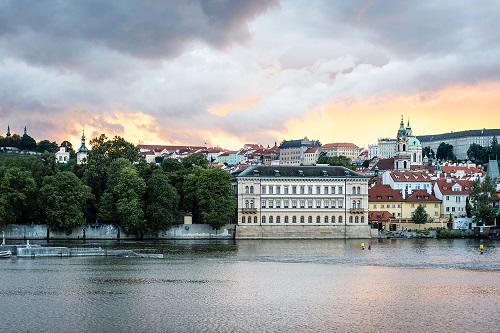The Czech Republic attracts millions of visitors each year. But depending on your nationality and the purpose of your trip, you may need a visa to travel there.
This article will walk you through the types of visas needed to visit the Czech Republic, based on which country you are coming from, your nationality, how long you’re planning to stay, and the reason for your trip. It will also outline how to apply for a work permit or residency status.
Visas
The Czech Republic is a member of the European Union, so if you’re an EU citizen, you can go there without worrying about a visa. Visitors from the European Free Trade Association (EFTA) – Switzerland, Iceland, Liechtenstein, and Norway – can also enter visa-free, so long as they have a valid passport or ID card. The Czech Republic is also a part of the Schengen Area.

Citizens of the United States, Canada, Mexico, and several other countries do not need a visa, as long as they are planning to visit for business or pleasure and stay less than 90 days in a 180-day period. They must also have a passport issued within the last 10 years, which is valid for at least three months after their planned date of departure from the Schengen Area. For more information on the Schengen visa requirements, see here.
The Czech Republic offers three types of visas:
Schengen Short-Term Visa
This visa is valid within the Schengen Area for up to 90 days, and can either be an airport transfer visa (type “A” visa) – valid for a layover within the Czech Republic – or a short-term visa (type “C” visa) – for the purpose of tourism, business, culture, sport, study, scientific research, employment or training.
For an airport transfer visa, applicants will need to fill out an application form and bring with them:
• a passport photo
• a valid passport
• documents proving the continuation of their journey to their final destination and their intention not to enter the Czech Republic
For a short-term Schengen visa, applicants will need to fill out an application form and bring with them:
• a passport photo
• a valid passport
• travel health insurance
• biometric data, such as fingerprints
• documents proving the purpose of their journey, their accommodation plans, their financial means and their intention to leave the territory
The fee for this visa is €60 for adults and €30 for children between six and 12 years of age.
Long-Term Visa
Long-term visas are intended for applicants who expect to stay more than 90 days in the Czech Republic for health, culture, sport, family, study, research, or entrepreneurship purposes. People who plan to stay longer in the Czech Republic, including for university or employment, should apply for a long-term residence permit.
To apply for a regular long-term visa, applicants need to fill out an application form and bring with them:
• two passport photos
• a valid passport
• travel health insurance
• biometric data, such as fingerprints
• a copy of their criminal record, from their home country and any state they lived in for more than six months in the last three years
• documents proving the purpose of their stay, their accommodation plans and their financial means
The fee for this visa is 2,500 CZK, or about €100, for most applicants.
Long-Term Visa For The Purpose Of Collecting A Residence Permit
These visas are single-entry visas for applicants who want to stay in the Czech Republic for several months and plan to apply for a long-term residency permit. The visa allows for 60-day stays in the Czech Republic and is valid for six months.
Spouses and family members looking to join visa-holders will need to apply for a Schengen visa. Then, once they are in the Czech Republic, they can apply for either a residency permit – if the family member already in the Czech Republic is an EU national – or a long-term visa – if the family member is not. For that, the spouse or family member will need marriage or birth certificates translated into Czech, along with the other information specified above.
Once granted the long-term visa, applicants and any family members need to inform the Foreigners’ Police Office about the place and length of their stay in the Czech Republic within three business days.

Work Permits
All non-EU and non-EFTA citizens will need an employment permit and a residency permit or an Employee Card or a Blue Card. Both cards are ways to combine employment and residency permits into one document.
Work permits are issued by the Labor Office, and require a work permit application, an administrative fee of 500 CZK, and information about the job offer, including the potential employer, the position, the place of work, and how long the job will last for. These are usually issued only for internships or shorter work periods, and both Blue Cards and Employee Cards are used for regular long-term employment.
Blue Cards are for highly qualified foreigners who will work in the Czech Republic for more than three months and are sponsored by an employer. If approved by the Ministry of the Interior, Blue Cards automatically come with a long-term visa. Applicants must apply before arriving in the Czech Republic, with:
• an application form
• two passport photos
• a valid passport
• travel health insurance
• biometric data, such as fingerprints
• a copy of their criminal record, from their home country and any state they lived in for more than six months in the last three years
They will also require supporting documents, such as:
• an employment contract that is valid for at least one year and includes a salary that’s at least 1.5 times the average gross yearly salary in the Czech Republic
• a university degree certification
• proof of accommodation (e.g. a rent agreement)
The fee for this visa is 5,000 CZK, or about €200, for most applicants.
More information on Blue Cards can be found here.
Employee Cards are for foreigners who will work in the Czech Republic for more than three months, but who may not be highly qualified or work full-time – jobs only need to offer 15 hours per week. These cards also come with a long-term visa, and they require the same application material as the Blue Card, except that, in place of university qualifications, they ask for proof of financial means. Also, your employment contract does not need to be for a specific length of time or amount of money, if you are applying for an Employee Card.
More information on Employee Cards can be found here.
Residency
Long-term residency is available for people who have been living in the Czech Republic for more than 90 days and intend to live in the Czech Republic for more than a year (including time spent with a former visa).
The application must be filed in person, and requires a completed application form and supporting information, dependent on the reasons for your longer stay. Most applications will require:
• a passport
• proof of accommodation
• a photograph
• proof of financial support
• health documents
For more specific requirements, visit the Ministry of the Interior’s website, and select the reasons you are applying for the long-term residence permit.

